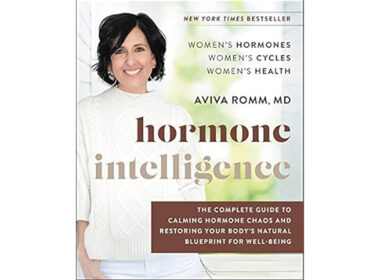“Cancer is the second leading cause of death in children ages 1 to 14.” [1]
“Although cancer in children is rare, it is the leading cause of death by disease past infancy among children in the United States.” [2]
“Even as the cure rate continues to improve, the incidence of childhood cancer has been steadily increasing over the last few decades…” [3]
Those are sobering facts for any parent to read. Leukemia, in particular, makes up the greatest percentage of childhood cancer diagnoses each year [4], and despite marked improvements in survival rates since 1969, is “the second leading cause of cancer death among children, adolescents and young adults younger than 20 years.” [5]
These facts about leukemia, in particular, are what make the results of a recent study out of Denmark on a possible link between hormonal contraception and the development of childhood leukemia, even more alarming.
In a study which included more than 1.1 million Danish children, researchers found a small, albeit statistically significant increase in the development of childhood leukemia among children whose mothers used hormonal contraception (in particular, combination estrogen and progestin oral contraceptives [6]) during or “close” to conception, i.e., within 6 months of conception (the risk was no longer statistically significant among women who had discontinued use of their hormonal contraception more than 6 months prior to conception). Researchers concluded that “our findings suggest the maternal hormonal use affects non-lymphoid leukemia development in children.” [7]
The study found that the greatest increased cancer risk among children whose mothers conceived within 6 months of discontinuing hormonal contraceptives was for nonlymphoid leukemia. Researchers estimate that “hormonal contraception use close to or during pregnancy might have resulted in one additional case of leukemia per about 50,000 exposed children, or 25 cases during the 9-year study period.”
That number may seem small. But for the parents of the approximately 15,300 children [8] who hear the words “your child has cancer” each year—and especially for the 12 percent of children who do not survive after being diagnosed with cancer— isn’t any avoidable risk worth knowing about and, well, avoiding?
There is research that shows how very small amounts of estrogen in the woman’s body can have a big impact on the fetus.
At the very least, these results are important for anyone who is currently on hormonal birth control, and considering going off of it anytime soon in order to conceive. With this knowledge, women who are already in a state of declining fertility (that is, age 35 or older), for whom a 6-month wait post-birth control discontinuation could have implications for their ability to conceive at all, may choose to go off hormonal birth control even sooner.
Natural Alternatives
Fortunately, for those who want to get off of hormonal birth control but aren’t quite ready to conceive yet, there are effective methods of family planning that are 100% natural, just as effective as hormonal contraceptives, and 100% cancer-risk free—for you and your child. When taught by a certified instructor, Fertility Awareness-Based Methods (FABM) have proven effectiveness rates that rival the Pill and other methods of hormonal birth control. They equip women and couples to learn more about their bodies, identify and treat any health conditions that may affect their fertility, and plan their families effectively, whether they want to conceive now, or postpone pregnancy.
FABM, also known as forms of Natural Family Planning (NFP), are backed by science, even if they don’t enjoy the pharmaceutical profits to have as much exposure. But they are growing in public awareness as women are seeking alternative forms of family planning that don’t come with birth control side effects. The FDA recently approved the first natural birth control, the app Natural Cycles, which uses fertility awareness principles as its basis. To enjoy the maximum effectiveness rates, we recommend you learn a FABM from a certified instructor in your area before relying solely on an algorithm. With that in place, apps can be a great resource for charting your cycle and managing your health data.
As more information comes out about the health risks and side effects of hormonal birth control, more women can take advantage of the benefits of fertility awareness and natural family planning. What makes this latest development different is that it affects future children conceived, not the women taking the Pill themselves. Since any mother wants the best for her child, we hope this information empowers women to explore safer options for her and her family.
References
1. https://www.cancer.org/cancer/cancer-in-children/key-statistics.html
2. https://www.cancer.gov/types/childhood-cancers/child-adolescent-cancers-fact-sheet
3. https://curesearch.org/Incidence-Rates-Over-Time
4. https://curesearch.org/Number-of-Diagnoses
5. https://www.lls.org/http%3A/llsorg.prod.acquia-sites.com/facts-and-statistics/facts-and-statistics-overview/facts-and-statistics/childhood-blood-cancer-facts-and-statistics
6. https://www.medscape.com/viewarticle/901922
7. https://www.thelancet.com/journals/lanonc/article/PIIS1470-2045(18)30479-0/fulltext
8. https://curesearch.org/Childhood-Cancer-Statistics







